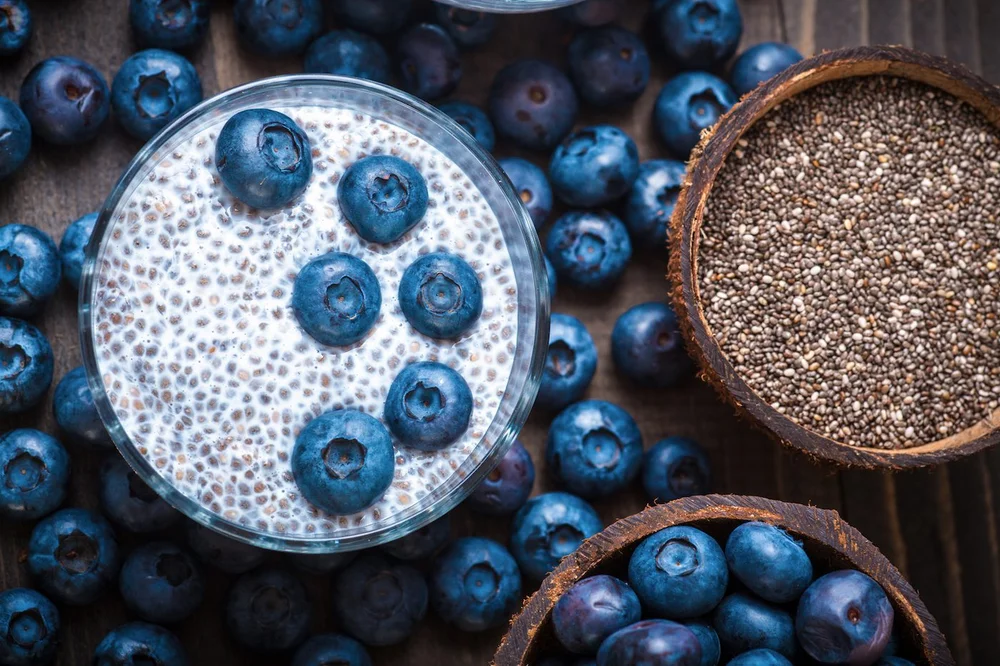What You Should Do If You’re Low in Serotonin
Medically Reviewed by Dr. Nicole Avena
Your brain is powerful.
Its “happy” neurochemicals – dopamine, oxytocin, and endorphins – can have a positive influence on your mood and behavior.
As with those brain neurotransmitters, serotonin also plays many important roles in the brain’s biochemistry.
So, what’s serotonin? Let’s take a closer look…
What’s Serotonin?
The human brain produces a soothing neurotransmitter called serotonin, mostly from the amino acid tryptophan, which is derived from dietary proteins. Serotonin regulates many transmitter systems and plays a role in the brain and body’s ability to communicate. Some have called it the “don’t worry, be happy” neurotransmitter.
Serotonin plays multiple roles in the brain’s functioning, including:
- Maintaining a balanced mood
- Increasing self-confidence and social engagement
- Supporting a healthy appetite
- Decreasing worries and concerns
- Facilitating deep sleep
- Sustaining the body’s 24-hour rhythms
- Enabling survival functions like body temperature regulation and breathing
Additionally, serotonin is linked with learning and memory. Though serotonin is manufactured in the brain, where it performs its primary functions, it’s estimated that about 90% of our serotonin supply is found in the digestive tract.
Are You Low in Serotonin?

Since serotonin also functions in your intestinal tract, having low activity of this transmitter is closely associated with changes in gut health and appetite. Low serotonin activity may result in difficulties with mental sharpness, binge eating, digestive issues, sleep problems, headaches, and anger or irritability.
So, what can you do if you’re low in serotonin?
Healthy serotonin activity can be maintained or improved in the brain and body by following these simple steps…
What to Do When You’re Low in Serotonin
Increase Serotonin with Exercise
Exercise is one of the best things you can do for your physical and mental well-being. It may offer health benefits such as improved brain function, energy, mood, and sleep. It also promotes cardiovascular health, healthy blood sugar levels, strong bones and muscles, and a healthy weight.
Physical activity is a serotonin intervention – it can help support a healthy serotonin level in your brain. Recently, several studies concluded that positive mood in individuals is a strong predictor of physical health. Consistent daily physical activity is one of the best ways to improve your serotonin levels and your overall brain health.
Best Serotonin Foods
Very few foods contain premade serotonin, and once absorbed into the blood it can’t get across the blood-brain barrier. However, tryptophan from food proteins can traverse this barrier, so it may be possible to support your brain’s serotonin needs by eating foods that increase the brain’s tryptophan levels. While no food contains serotonin, increasing your consumption of foods containing its precursor, tryptophan, may help increase serotonin levels in your body.
Some examples of foods rich in L-tryptophan are:
- spirulina
- seeds (especially pumpkin)
- squash
- chia
- watermelon
- grass-fed meats (beef, lamb, goat)
- free-range poultry (chicken, turkey, duck)
- wild caught salmon and tuna
- peas and beans (not canned)
- tofu
- tempeh
- edamame
- eggs (especially the whites)
- spinach
Though research hasn’t definitively proven whether these foods can increase serotonin levels in the brain, supporting your brain and body with these healthy foods is a smart choice, regardless.
Natural Serotonin Supplements
Supplements that provide select B vitamins, as well as concentrates of saffron, can help support healthy serotonin levels. BrainMD’s Serotonin Mood Support was created specifically to promote multiple brain mechanisms that maintain healthy serotonin levels in the brain.*
Serotonin Mood Support
Serotonin Mood Support can help increase the production of soothing brain waves, correct stress-related nutritional deficiencies, and promote relaxation that can enable quality sleep.* It can help you handle the ups and downs of life with more composure.*
This formula includes:
- 5-Hydroxytryptophan (5-HTP) – This nutrient is readily absorbed and rapidly reaches the brain, where it requires just one enzyme step for conversion to serotonin.* This enzyme also works well with vitamin B6.
- Vitamin B6 – Vitamin B6 is an essential cofactor for enzymes that make serotonin and dopamine.* It works in harmony with methylfolate and methyl-vitamin B12 to support a variety of neurotransmitter systems.*
- Methylfolate – The B vitamin folate provides methyl groups needed to make serotonin.* Methylfolate is pre-activated folate, and is the body’s most readily utilized form of this vitamin.* It’s better utilized than folic acid, a manufactured substance not found in nature that many people cannot efficiently convert into usable folate.*
- Methyl-cobalamin – The body’s most readily-utilized form of vitamin B12, methyl-cobalamin provides metabolic backup for methylfolate.*
- Saffron – The world’s most expensive spice, saffron has been used for thousands of years to induce happiness. Modern saffron concentrates have consistently improved mood and other mental functions in clinical trials.*
Improve Your Outlook
If you want to feel happier, engaging in activities that release more happiness neurochemicals – like serotonin – into your brain is a smart place to start.
Healthy lifestyle habits, such as daily exercise, consuming whole foods, and taking a dietary supplement like Serotonin Mood Support, can work together to sustain the brain’s many vital functions, support a positive mood, and promote restful sleep.*
Try it today!
At BrainMD, we’re dedicated to providing the highest purity nutrients to improve your physical health and overall well-being. For more information about Serotonin Mood Support our full list of brain healthy supplements, please visit us at BrainMD.
*These statements have not been evaluated by the FDA. This content is for informational purposes only. It is not meant to substitute for medical or healthcare advice from a physician, nor is it intended to diagnose, treat, cure, or prevent any disease. Consult your healthcare provider before beginning a new health regimen.
- This Is What You Need to Know About HBOT
Medically Reviewed by Dr. Nicole Avena - April 22, 2024 - Hormone Changes in Men: How to Know If You Have Low Testosterone! - April 15, 2024
- This Is What You Need to Know About EMDR Therapy! - April 11, 2024




